CONFERENCE ANNOUNCEMENT AND CALL FOR PAPERS
SUSTAINABLE INNOVATION 2025
Accelerating Sustainability in the Creative Economy and Creative Industries
Sustainable Innovation in Products, Services and Business Models - Past, Present, and Future 25th International Conference In-Person October 2025 Organised by: The Centre for Sustainable Design® at UCA, UK
25th International Conference
In-Person
October 2025
Organised by: The Centre for Sustainable Design® at UCA, UK
CALL FOR PAPERS
Concept
Sustainable Innovation 2025 will review the evolution and trends related to sustainability, products, services, and business models over the last 25 years and look forward to 2050. The conference will explore how product design and development has adapted to global challenges like climate change, resource scarcity, and shifting consumer expectations by adopting circular economy principles, eco-design, and low carbon innovation.
Delegates will hear from leading-edge thinkers, researchers and practitioners and have the opportunity to engage in discussions about the impact of global policies related to sustainability, products, services and business models, and the challenges and opportunities related to the ongoing transition from linear to circular models, and the role of new low carbon technologies and materials. With a strong focus on both reflecting on the past and looking to the future, the event will provide a platform for academics, industry leaders, innovators and policymakers to share insights and drive forward-thinking strategies.
Sustainable Innovation 2025 welcomes refereed conceptual, research-based papers and case studies from academia and business. This international conference will create a unique space for learning, thinking and networking, with delegates from academia, international brands and large corporations, SMEs and start-ups, as well as policymakers, consultants and NGOs. The conference is supported by an international Advisory Board (to be announced).
Background
Over the past 25 years, sustainability has evolved from an emerging concern to a global imperative, influencing how businesses design, produce, and deliver products and services. The increasing awareness of climate change, resource depletion, and environmental degradation has pushed industries to rethink traditional business models and adopt more sustainable practices.
Key global events, such as the signing of the Kyoto Protocol in 1997 and the Paris Agreement in 2015, set the stage for governments and businesses to commit to reducing greenhouse gas emissions. The rise of circular economy principles has further transformed industries, promoting product durability, repairability, and recyclability. Policies like the European Commission’s Circular Economy Action Plan (CEAP) and the Ecodesign for Sustainable Products Regulation (ESPR) have created a regulatory framework that will drive companies to adopt more resource-efficient practices at the design stage, while Extended Producer Responsibility (EPR) schemes will mean that manufacturers will need to take responsibility for the ‘end of life’ of their products.
Critical to sustainable innovation are new material and technological development that enable more low carbon, resource efficient use, supporting the transition toward circular business models. Scarcity, the cost and the functional property of materials has always been a driver for design changes, and many industries are increasingly considering bio-based and recycled materials as ways to minimise reliance on virgin resources. Technological advancements, such as the Internet of Things (IoT), artificial intelligence (AI), and blockchain, are enabling real-time data tracking, which further supports the optimisation of resource use and waste reduction across supply chains. Additionally, 25 years of developments in web technologies have led to a growth in online green marketplaces that further enable circularity through the exchange and adoption of materials, products and services.
Over the last two decades, many companies have shifted from treating sustainability as purely a compliance or communications issue to making it a core component of their business strategy. Leadership roles like Chief Sustainability Officer (CSO) have emerged over the last 25 years, driving sustainability agendas across organisations. With varying degrees of success, these leaders have sought to embed sustainable innovation into organisational processes. Where they have been successful, environmental considerations are part of the design and development process from the start, but progress has been uneven to date.
Over the last 25 years, new approaches to sustainable innovation have arisen to generate more radical ideas and solutions. These include open innovation platforms and challenges (e.g., as run by Innovate UK and Global Alliance Africa), competition-based environmental prizes (e.g., The Earthshot Prize), and the use of crowdsourcing techniques and hackathons (e.g., IBM’s Call for Code Global Challenges).
New service models have also emerged, such as Product-as-a-Service (PaaS) and leasing programmes that aim to extend product lifecycles and reduce waste by enabling businesses to maintain ownership of products through take-back, refurbish and repair. This trend is likely to increase as legislators extend EPR laws to cover most products.
Since the first Sustainable Innovation conference in 1995, policy makers have placed a greater emphasis on environmental issues related products, design and lifecycles, broadening from an initial focus on production processes. Growing regulatory demands alongside increased customer concerns has also created opportunities for innovation and reduced cost. As a result, businesses have implemented approaches to sustainable innovation, such as designing products with lower energy requirements, optimising lifecycles to reduce waste and increase circularity. Increased focus on cost efficiency during product design changes mindsets and priorities, leading to improved profitability, competitiveness, and environmental performance. However, achieving these positive outcomes demands close collaboration between product design, production engineering, and supply chain teams, and external partners to ensure that sustainability is integrated into every stage of product design and development.
Looking ahead over the next 25 years, it is essential that all organisations recognise the challenges of climate change and circularity and accelerate their sustainability efforts. Rising pressure for eco-friendly products from a younger, climate-conscious generation is one driver for change. Likewise, legislation is expected to become increasingly stringent, for example demanding widespread use of digital product passports for all products. Also, recently launched standards, such as the ISO 59000 family, are expected to see broader adoption over time. As a result, sustainable innovation needs to move to become a core competence for every business.
To achieve the best outcomes in developing resource-efficient, low-carbon products, services, and business models – and to meet the tougher regulatory demands in a rapidly changing world – effective collaboration between industry, government, and academia is essential. Establishing effective partnerships will be a key requirement to advance R&D, drive sustainable innovation and accelerate the adoption of new materials and technologies throughout the design and development lifecycle.
Questions
Key questions to be addressed in Sustainable Innovation 2025 include:
- What are the impacts of current and upcoming policy, legislation and sustainability standards on product lifecycle management, and how can research contribute to shaping more effective regulatory frameworks?
- How can circular economy principles be further integrated into product development and business models, and what frameworks are needed to evaluate their long-term environmental and economic impacts?
- What are the most promising low-carbon and bio-based materials emerging across sectors, and how can their scalability and lifecycle sustainability be assessed?
- In what ways can storytelling and design thinking be applied to embed sustainability narratives into the product development process, driving both innovation and market success?
- How do evolving consumer behaviour, influenced by eco-labelling and sustainability narratives, affect the market adoption of sustainable innovations, and what strategies can increase their effectiveness?
- How can advancements in data analytics, Artificial Intelligence (AI), and digital innovation be leveraged to improve lifecycle assessments and enhance resource efficiency in product and service design?
- How can emerging technologies such as AI, Internet of Things (IoT), and digital product passports enhance supply chain transparency and support the development of sustainable business models?
Conference topics
Sustainable Innovation 2025 welcomes conceptual, research-based and case study papers focused on Sustainable Innovation in Products, Services and Business Models – Past, Present, and Future. Papers should cover sustainability, design, development, and commercialisation issues related to the following topics:
| – (New) business models – Bio-based materials – Biodiversity & Environment – Biomaterials – Biomimicry – Case studies – Circular economy – Consumer behaviour – Crowdfunding – Design and innovation processes – Design management & strategies – Digital Product Passports – Disruptive innovation – Eco-innovation – Emerging technologies – Extended Producer Responsibility (EPR) – Fab labs & makerspaces – Net zero – Green growth & economy – Green skills – Incubators & accelerators – Industry 4.0 | – Low-carbon innovation – Makers, modifiers and fixers – Market transformation – New materials – Open innovation and crowdsourcing – Organisational dimensions – Product circularity – Product design & development – Product policy – Product-service-systems (PSS) – Product sustainability – Radical change through design – Recycling processes and technologies – Regenerative Design – Repair Cafés & cultures of repair – Reuse, repair and re-manufacturing – Standards – Supply chains and networks – Sustainable consumption & production – Sustainable procurement & sourcing – Tools & methodologies – Venture Labs |
Authors should consider aligning their proposals with one or more of the following core themes:
- Policy, Legislation, and Standards: Government policies, industry standards, and international agreements are shaping the future of sustainable product design and commercialisation.
- Business Model Innovation for Sustainability: Companies are rethinking how they create, deliver, and capture value, adopting circular and service-based models that promote long-term sustainability.
- Innovation Cultures and Networks: Organisational cultures and cross-sector networks are crucial for fostering innovation and sharing knowledge about sustainable practices.
- Consumer Decision-Making and Market Adoption: Understanding how sustainability influences consumer behaviour is key to driving market adoption of eco-friendly products and services.
- Environmental Stewardship and Circular Innovation: Shifting from linear to circular economy models, businesses are exploring ways to design out waste and keep products and materials in circulation.
- Decarbonisation through New Materials: The focus is on developing and adopting low-carbon and bio-based materials, reducing emissions across industries like construction, fashion, and electronics.
- Data and Digital Innovation: Digital tools, AI, and IoT are enabling real-time tracking of resource use and waste, optimising production processes for greater efficiency.
- Communications, Storytelling and Narratives of Change: Embedding sustainability into the narratives surrounding products helps create stronger emotional connections and market appeal.
Submission guidelines
Submissions are encouraged from academics, practitioners, and industry leaders. Papers should provide actionable insights, case studies, or research that address the topics and themes above and contribute to a robust dialogue around sustainability, products, services, and business models.
Abstract Submission Deadline: 14th January 2025
Abstract Length: 500 words maximum
Email abstracts should be submitted to rcarruthers@uca.ac.uk in both word and PDF formats outlining your proposed paper by 14th January 2025. The abstract will then be sent to the Advisory Board for evaluation and authors will be given feedback. The highest ranked papers will be informed by 7th April 2025 and invited to submit a full paper and subsequently present at the conference. Please only submit abstracts if you have budgets to attend the conference.
Full Paper Submission Deadline: 7th July 2025
Paper Length: 3,000 to 5,000 words for full papers; 1,000 to 1,500 words for short papers.
Formats: Papers should be submitted in both word and PDF formats to rcarruthers@uca.ac.uk
Contact
For more information on Sustainable Innovation 2025, please contact:
Professor Martin CharterDirector
The Centre for Sustainable Design ®
University for the Creative Arts
UK
Tel: + 44 (0) 1252 892878
Email: mcharter@ucreative.ac.uk
Website: cfsd.org.uk















